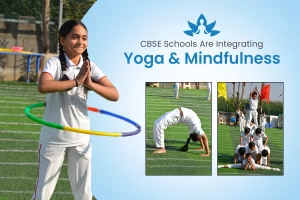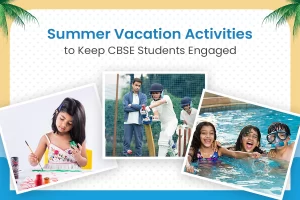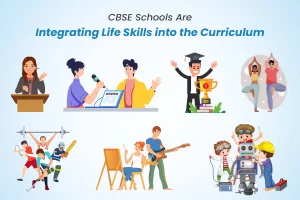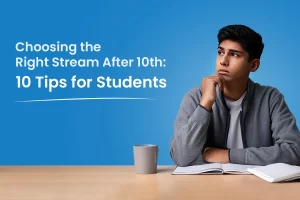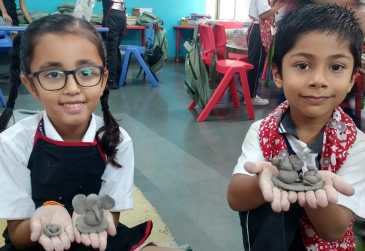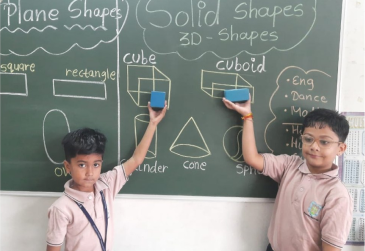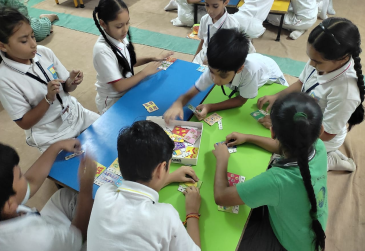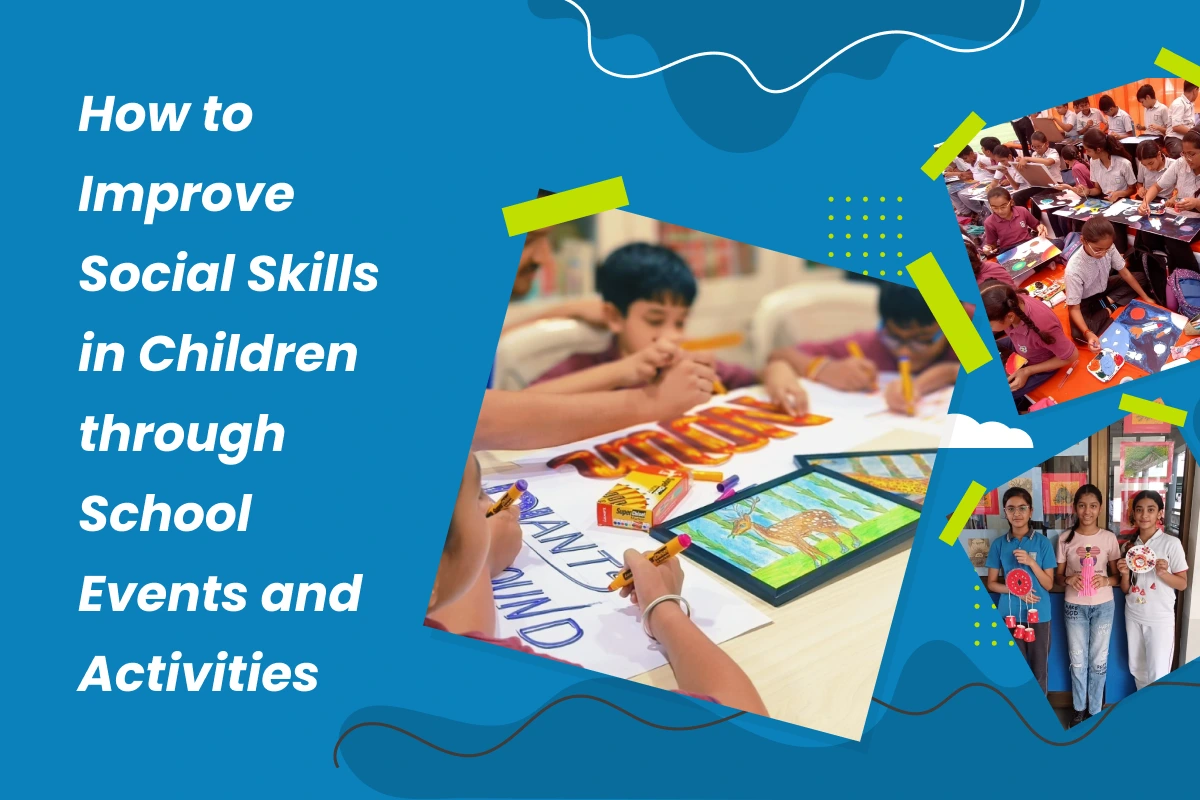In today’s time, having excellent social skills is of extreme importance. Social skills, in general, are the skills we use every day to interact and communicate with others. They include verbal and non-verbal communication, such as speech, gesture, facial expression, and body language. Research indicates that children who develop social skills early on are more likely to have better career outcomes and create stronger friendships in adulthood. Hence, it becomes the responsibility of the school to inculcate these in children. But how would the schools achieve this successfully? Events and activities can help schools improve children’s social skills. Let’s see how?
Ways to Improve Social Skills through School Events and Activities
- Decision-Making Games
Many people struggle with indecisiveness; hence, social skills exercises, including decision-making games, are the ideal approach to inspiring people to think and act. Simple sorting and matching games or exercises from strategy games teach children endurance, patience, and teamwork. These games ask children to make decisions even if they are not right the first time, therefore helping them with doubt. It shows modest risk consequences and motivates them to try once more in case of a mistake.
- Team Sports
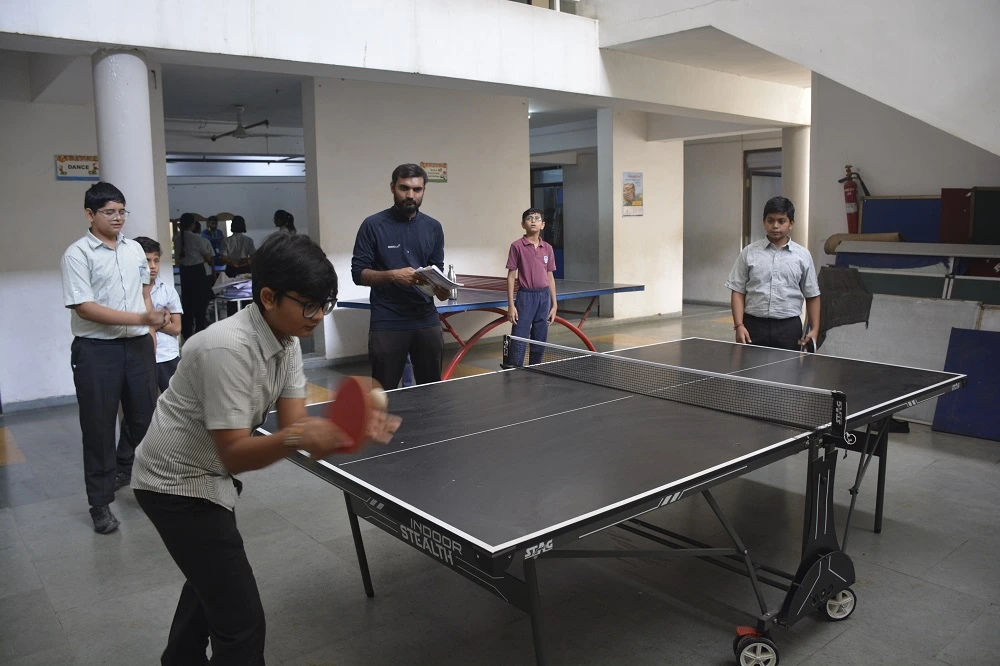
Children can engage in team sports through their school, on a leisure team, or even in their backyard playing with friends. Through team sports in education, children learn to collaborate towards a shared objective and remain concentrated on the game. Moreover, they comprehend how to identify feelings such as when one falls down or scores a point; therefore, they know what to do when they win or lose.
- Engaging in Debate
For older children, a good debate helps them to learn how to control emotions and practice positive expression even in trying circumstances. They pick up the ability to conduct tough talks coolly, without aiming to offend the other person or turning their exchange into a fight. Those who are able to debate and pay attention to their opponent grow more suited to be leaders in the classroom and business.
- Collaborative Art Projects
One of the best ways to enhance social skills of students is by engaging them in cooperative artwork activities. Developing murals and creating props for school performances are some of the examples of these tasks that may take place. Through such collaborative engagements, students are aided to talk more often, understand other people’s points of view, and thus learn to value the different opinions.
The students become comfortable enough with one another; they share materials that facilitate criticism either way, hence enabling them to appreciate their peers work. This leads to close networks, which are significant in boosting kids self-esteem as they realize that what they contribute counts towards better results.
- Cultural Exchange Days
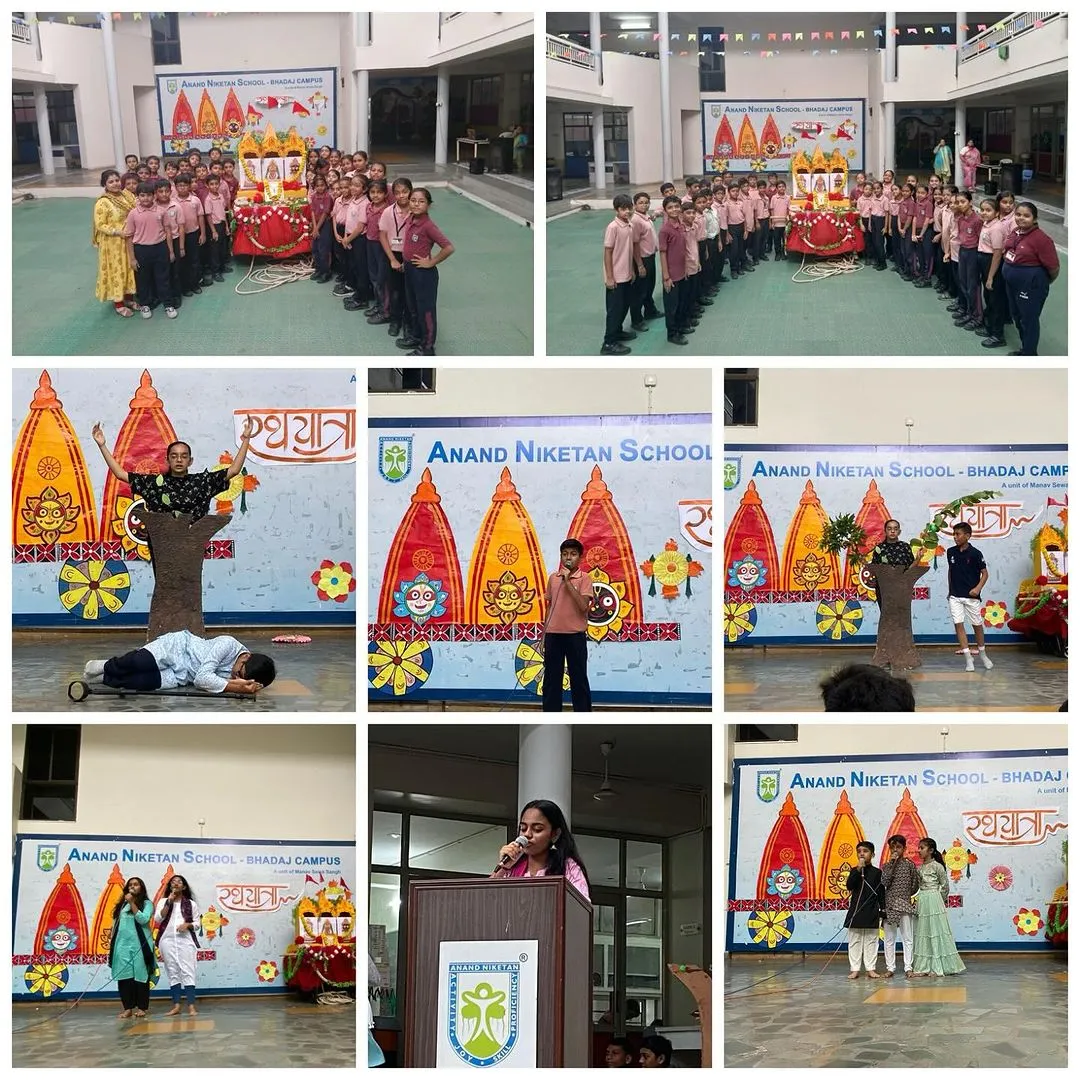
Cultural exchange days can significantly enhance social and cultural awareness among students. Such events may involve the students sharing part of their cultures through food, music, dances, or even dressing in traditional attire, particularly for CBSE schools that have diverse student populations.
These activities teach kids to appreciate differences, ask respectful questions, and promote understanding for different cultural perspectives. It is also a chance for them to enhance their public speaking and presentation skills in a relaxed environment.
- Peer Tutoring Programs
Implementing peer tutoring programs can be a powerful tool for developing social and emotional skills. Older or more academically advanced students can be paired with younger ones or those needing extra help. This not only reinforces academic concepts for both parties but also develops important social skills.
Tutors learn patience, clear communication, and leadership, while those being tutored practice asking for help, expressing gratitude, and building trust with peers. This symbiotic relationship fosters a sense of responsibility and boosts self-esteem for all involved.
- Community Service Projects
Engaging students in community service projects is an excellent way to develop empathy, teamwork, and a sense of civic responsibility. Activities could include organizing food drives, participating in local clean-up efforts, or visiting senior centres.
These experiences expose students to diverse community members and social issues, broadening their perspectives. They learn to communicate with people from various backgrounds, work collaboratively towards a common goal, and develop a sense of purpose beyond their immediate social circles.
- Role-Playing Workshops
Conducting role-playing workshops can be an effective method to improve students’ social skills. These workshops can simulate various real-life scenarios, such as job interviews, conflict resolution, or even everyday social interactions.
By acting out these situations, students can practice appropriate responses, body language, and communication techniques in a safe, controlled environment. This helps build confidence and prepares them for similar situations they might encounter in real life, thus enhancing their overall social confidence.
- Student-Led Clubs
Encouraging the formation and management of student-led clubs can significantly boost leadership and organizational skills. These could be based on shared interests like photography, environmental awareness, or book discussions.
Running a club teaches students how to plan events, manage resources, delegate tasks, and motivate peers. It also provides a platform for students to practice public speaking, negotiation, and conflict resolution – all crucial social skills for students in their future personal and professional lives.
- Digital Citizenship Workshops
In our increasingly digital world, it’s crucial to teach students how to navigate online spaces responsibly and respectfully. Digital citizenship workshops can cover topics like online etiquette, responsible social media use, and cyber safety.
These workshops help students understand the impact of their online actions, teaching them to communicate effectively and respectfully in digital spaces. This is particularly relevant for today’s students, who often form and maintain relationships through online platforms.
Let’s Learn the Social Skills!
So, we can see how schools can practice the mentioned ways in the blog to help children polish their social skills. The benefits of learning them cannot be overstated anymore. These abilities motivate them academically, influencing their motivation as well as involving them in their study. This ultimately helps in improving their performance in reading and mathematics. Therefore, through this blog, schools can learn how to make their students worthy of living a life in a confident way.

